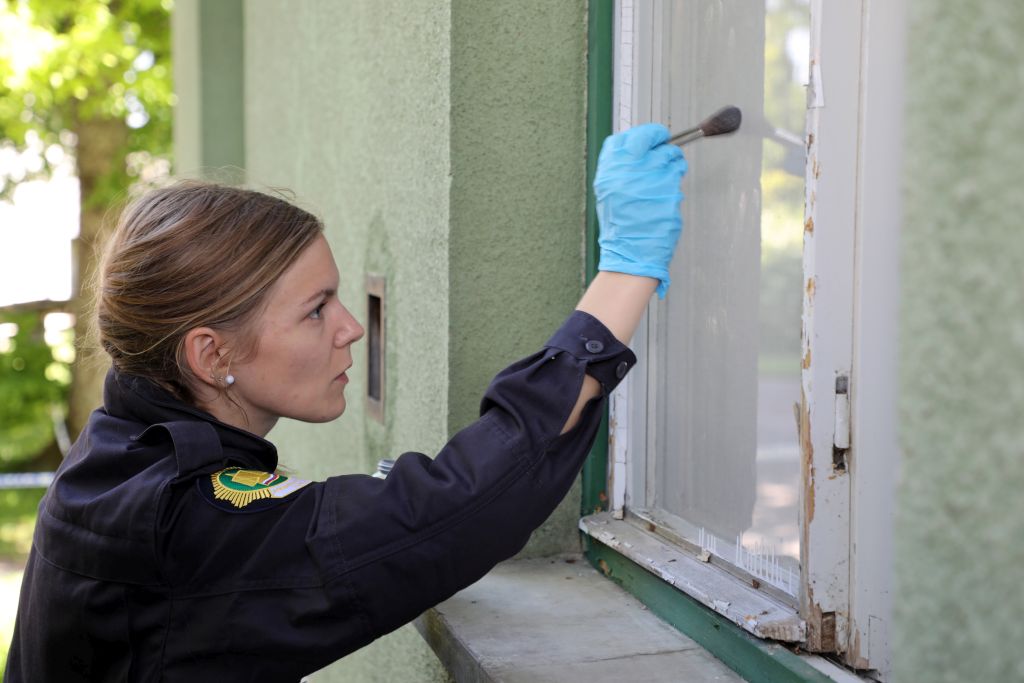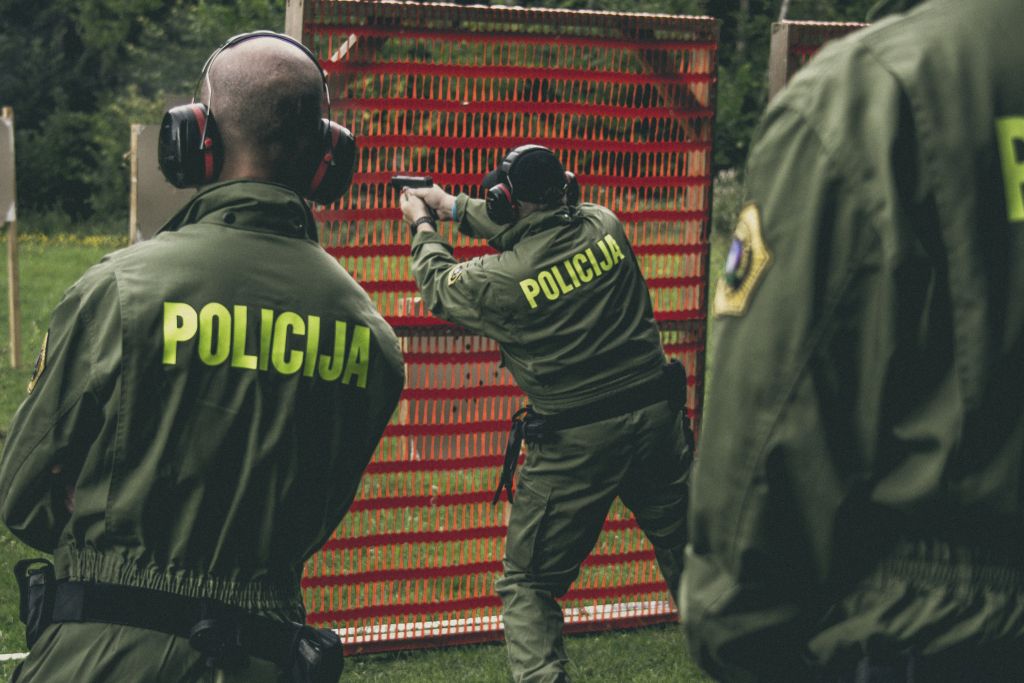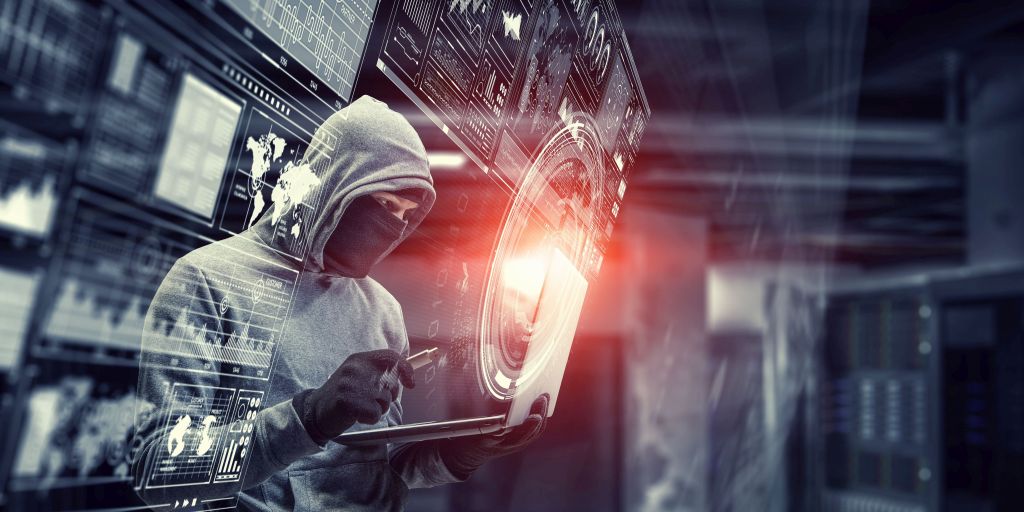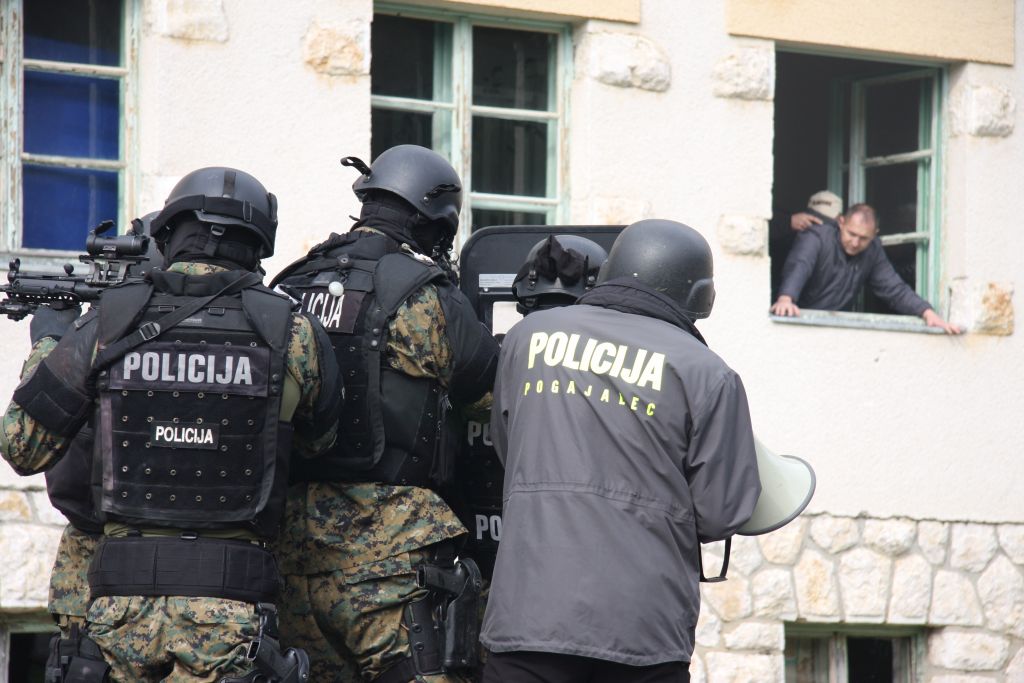We live in times when crime is not confined by national borders. This is especially true for organised crime, trafficking in arms, human beings and illicit drugs, and money laundering. Slovenia too has had to face an increase in these types of crime and it comes as no surprise that the fight against organised crime groups operating internationally is one of its priorities.

To effectively detect and investigate crime, the police try not only to keep up with but to stay well ahead of criminals. This is why the police introduce modern investigation methods and techniques, train and equip experts for the investigation of all types of crime, including the most serious ones, and improve evidence-gathering procedures. We perfect the use of specific methods and techniques of crime investigation. We thoroughly monitor the various forms of crime that occur in Slovenia and strengthen preventive work in this field. By monitoring crime trends at home and throughout the world, we contribute to improving crime clearance rates that are among highest in Europe.
The Slovenian police are a reliable and trustworthy partner abroad. This is confirmed by the fact that the police have contributed to the success of a number of international criminal investigations. The growing globalisation of organised crime, the ever more sophisticated and complex forms of white-collar and computer crime, and advanced technologies exploited by perpetrators have become a serious threat. The police have to keep pace with these developments and, with proper technical support and cooperation with international law enforcement, continue to limit and prevent crime opportunities.

Although members of the criminal police do not wear uniforms, they do sometimes wear jackets with “POLICIJA” written on the back. In detecting crime and tracing perpetrators they frequently cooperate with uniformed police officers. Uniformed police, who are on duty 24/7, are typically the first to respond to or detect a crime and to take immediate measures and investigate less demanding crimes, whereas more complex forms of crime requiring special investigative skills and technical equipment are investigated by criminal police officers. At the level of police stations, there are local crime investigation groups operating in the local environment, especially in urban areas. There are also mobile crime investigation groups within regional police directorates targeting areas with higher levels of crime.
The broad scope of general crime
The field of general crime is very diverse and represents approximately 80% of all reported crime. It includes property crime (thefts, burglaries and robberies), violent crime, sexual crime, juvenile delinquency and domestic violence. With the development of modern means of communication, investigation is expanding to these fields, for example to the investigation of online child abuse, while the latest growing trend seems to be in environmental crime (for example illegal trade in and transport of waste).
Crisis situations such as suicide attempts, abductions, hostage situations and bomb threats require the involvement of police negotiators. Police negotiators perform regular police duties in their units as criminal police officers, police officers, neighbourhood police officers, etc.
Investigation of organised crime groups
In the field of organised crime, the police deal with trafficking in illicit drugs, traditional forms of organised crime (money counterfeiting, abuse of prostitution, trafficking in human beings, organising illegal migration, smuggling of highly taxed goods) and extremely violent acts (explosions, murders, extortion, acts of terrorism, trafficking in firearms and other hazardous substances for mass destruction), and with other crime types such as corruption and money laundering as a consequence of organised crime.
The police have a special operational service that can carry out covert investigation measures (undercover operations and surveillance) and use specialist equipment. To be able to better prevent potential acts of terrorism, we also have access to passenger name records (PNRs) in accordance with the relevant European directive.

From increasingly complex computer investigations to extremely demanding detection of white-collar crime and corruption
With regard to new cyber tools (internet, dark web), which are being increasingly used by perpetrators and criminal groups targeting both individuals and companies, the police have to face the question of how to successfully investigate computer crime within the existing legislative powers. The main challenge is to follow the rapid progress of information technologies and the constantly expanding volume of data and combine them with new knowledge, staff and suitable equipment in order to ensure the professionalism and success of computer investigation and digital forensics.
White-collar crime and corruption are becoming increasingly complex and so is investigation of these crimes. These crimes are highly organised and taking place cross-border, harming the financial interests of Slovenia and the European Union, which is why the focus is on investigating criminal offences generating huge profits or causing extensive damage and criminal offences related to the use of public funds and major corruption risks (for example large infrastructure investment projects, national and local-level public procurement, subsidies). The police also focus on tracing financial transactions by performing parallel financial investigations and seizing illegally gained property.
Support by criminal intelligence and international databases
Criminal investigation is multidisciplinary and requires the cooperation of various experts and liaison with other state bodies and inspection services. Criminal intelligence invaluably supports police decision-makers and investigators in steering the work of the police, conducting investigations and solving cases.
Effective investigation also requires international cooperation with foreign police forces as part of established structures such as Interpol, Europol, the Schengen Information System and SIRENE Bureaus, the Police Expert Network on Missing Persons and the European Network of Fugitive Active Search Teams, multilateral and bilateral agreements, etc., providing Slovenian police officers direct access to vitally important operational data available through international police databases. This enables us to be immediately responsive, with on-duty services and national contact points being immediately available.
Almost every murder case in Slovenia solved
In terms of murder rates, Slovenia is among the safest countries both in Europe and globally. When it comes to investigation of crimes against life and limb, almost all murder cases in Slovenia are solved. This can be attributed also to the high level of response provided by the police.
When a murder is reported to the operations and communications centre, urgent steps are taken immediately. Various services in the police will carry out their part of the task. Police officers secure the crime scene and take the first measures on the spot. Criminal police investigators and crime scene officers carefully examine the crime scene to locate potentially useful traces or items. The National Forensic Laboratory examines the material accordingly and makes comparisons; these are the initial steps in proving a crime has taken place and finding the perpetrator. Meanwhile, criminal police officers carry out inquiries, investigate and try to do their best to gather as much information as possible on a potential offender.
If necessary, other police services get involved in the criminal investigation, for example the Special Unit might assist in arresting hardened and most dangerous perpetrators or engage their divers, members of alpine and cave rescue teams, or bomb technicians to handle specific situations. Also very effective is the assistance of the riot police, particularly in searching extensive ground and difficult terrain, and of handlers of police dogs, both general and specialist dogs trained in detecting traces of blood, semen, inflammable substances, or weapons and explosives.
Related content
Criminal Police Directorate
National Bureau of Investigation
National Forensic Laboratory
Crime Preventive
When I Become a Victim of a Crime



